For responsible and committed consumption
as a way to social, economic and environmental justice
International trade could be a development lever, but often it generates inequality and impoverishment processes. The deregulation of markets does not guarantee a profit for marginalised producers in the South. In the two last decades their situation has seriously worsened. Since more than 40 years fair trade initiatives exist as an alternative route that could alleviate the inequalities created by conventional trade and put humans at the centre. Today the ambition is to become global.
The theme of The 11thTwo Week Fair Trade Event is clearly part of this global effort. :
Pour une For responsible and committed consumption towards social, economic and environmental justice!
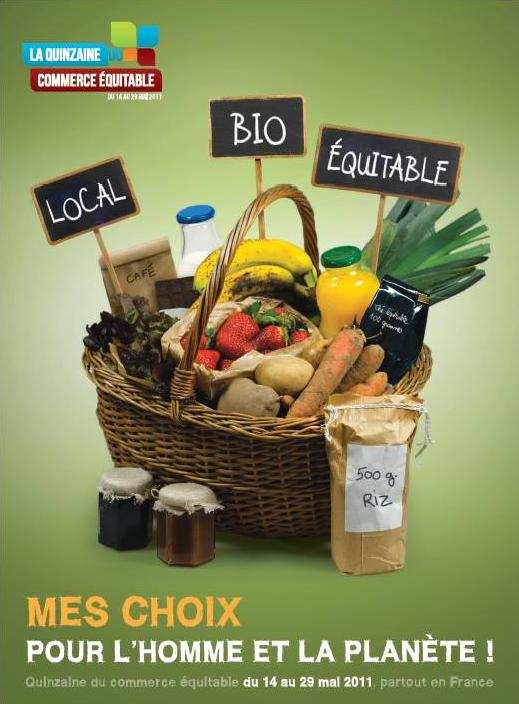
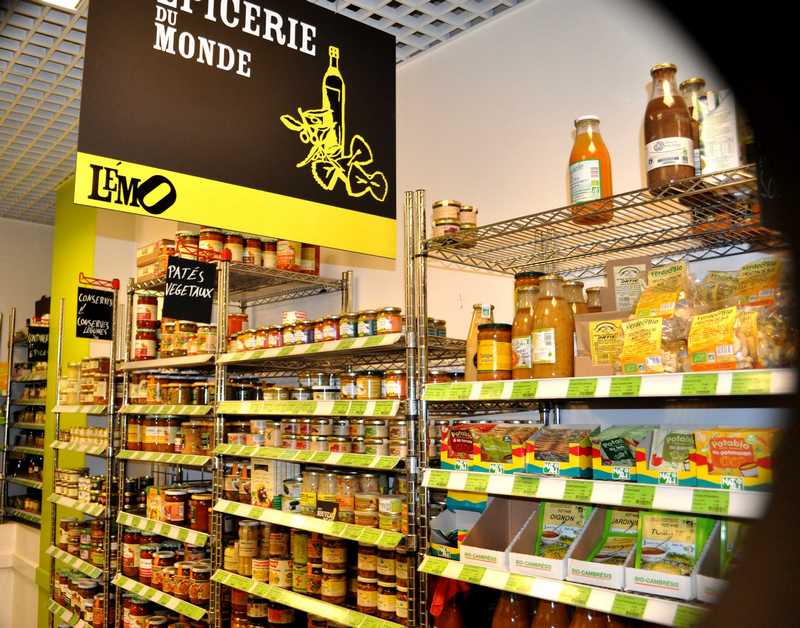 The poster produced for the fair (picture, left) also expresses the idea very well. Today fair trade is no longer confined to north-south relations, the north-north dimension is becoming increasingly important. For instance, as can be seen in the BioCoop network of shops selling organic products, it is vital that trade is fair in the north as well as in the south. Thus in France, BioCoop has set up channels for fair and organic products under the slogan “Together makes more sense” in partnership with local production and processing units.ALTER ECO also aims at being both organic and fair.
The poster produced for the fair (picture, left) also expresses the idea very well. Today fair trade is no longer confined to north-south relations, the north-north dimension is becoming increasingly important. For instance, as can be seen in the BioCoop network of shops selling organic products, it is vital that trade is fair in the north as well as in the south. Thus in France, BioCoop has set up channels for fair and organic products under the slogan “Together makes more sense” in partnership with local production and processing units.ALTER ECO also aims at being both organic and fair.
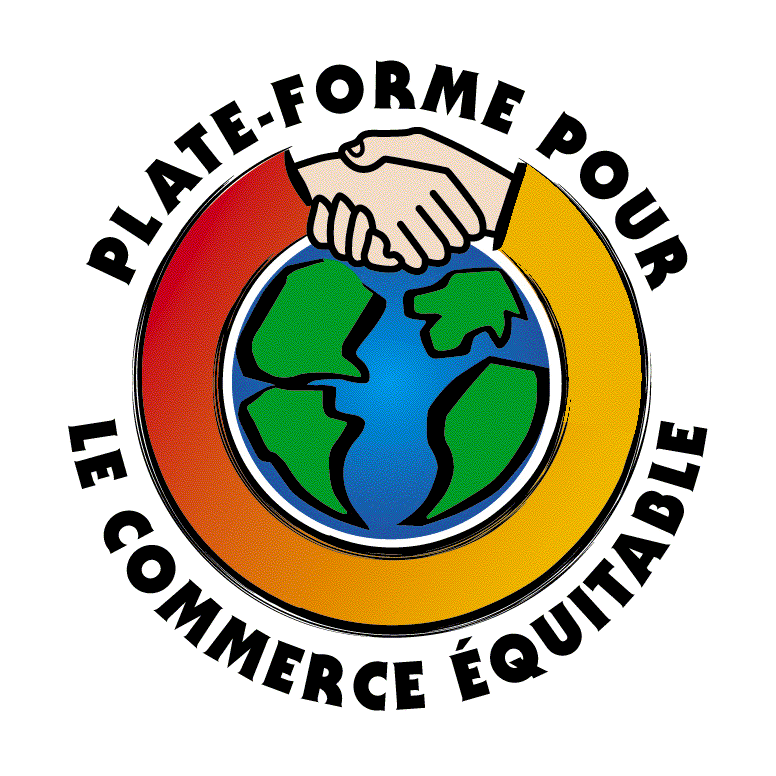 Through its charter the PLATFORM FOR FAIR TRADE has undertaken to steer international trade towards more justice. It has decided to:
Through its charter the PLATFORM FOR FAIR TRADE has undertaken to steer international trade towards more justice. It has decided to:
-
inform citizens about the mechanisms of international trade, its dysfunctions and inconsistencies
-
create awareness among the public about fair trade, promoting information about the advantages of a better social and environmental quality of products and services
-
participate in,organise or finance campaigns for more just and fair international trade rules
Indeed to support fair trade is to work to make all trade fair, the north-south dimension in particular. As far as food products are concerned this must include the recognition of the right to food sovereignty. ARTISANS DU MONDE explains this very well in a document called Enjeux (At stake). enjeux Here is an extract:
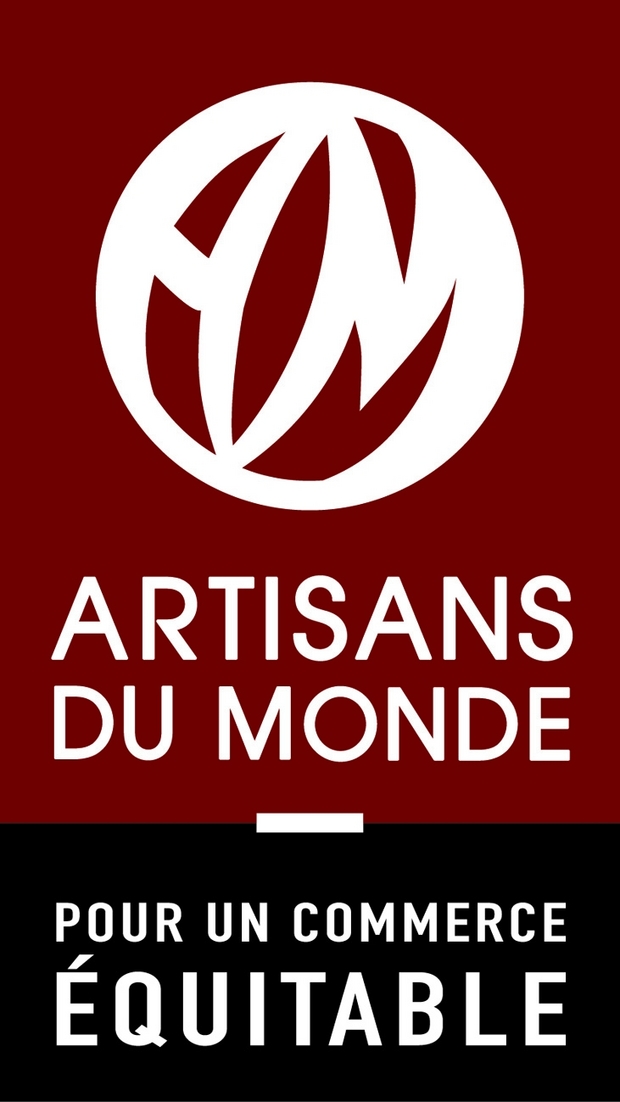
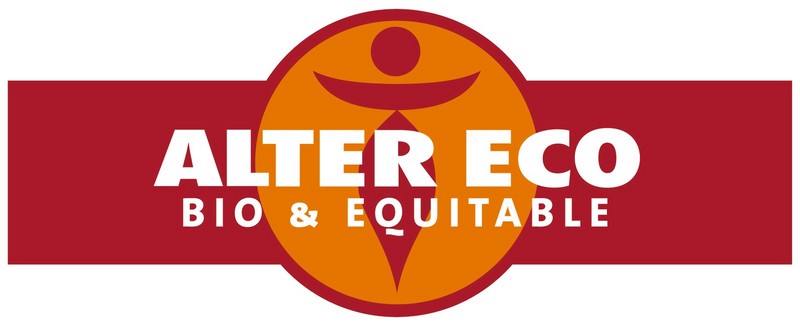 «“Today fair trade mainly concerns export products from countries in the south to countries in the north. It has no impact on the price that farmers get for foodstuffs sold in their country. But on their home market they have to compete with imported cereals, meat and other products from the north. This dumping of goods from the north has a dramatic effect on the price of basic foodstuffs produced by the farmers in the south.
«“Today fair trade mainly concerns export products from countries in the south to countries in the north. It has no impact on the price that farmers get for foodstuffs sold in their country. But on their home market they have to compete with imported cereals, meat and other products from the north. This dumping of goods from the north has a dramatic effect on the price of basic foodstuffs produced by the farmers in the south.
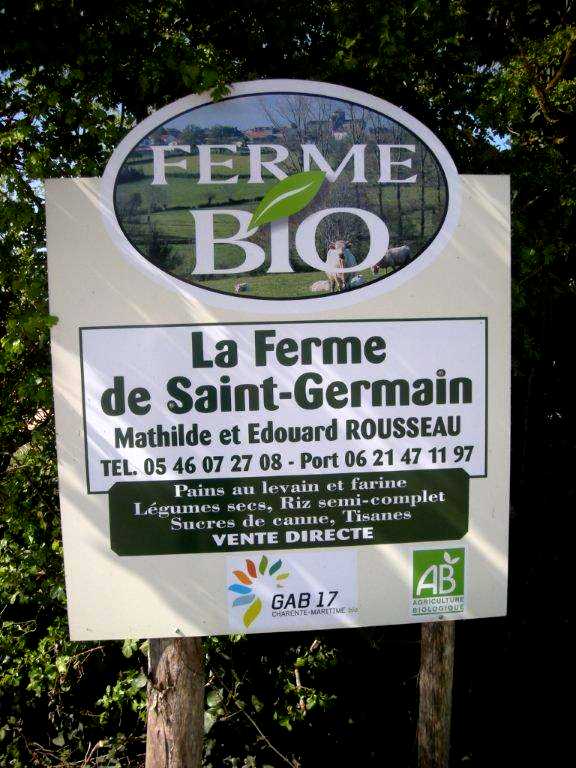 Better income for farmers from the foodstuffs they sell could be achieved through the development of trade between the countries in the south themselves, the south-south exchange of goods. . .But this should definitely include the recognition of the right to food sovereignty,that is the right of states and regional groups to independently conduct policies to protect their internal markets and support the price levels on those markets. The right to food sovereignty should be recognised at international level by multilateral bodies. This also implies the mobilisation of citizens’ organisations.”
Better income for farmers from the foodstuffs they sell could be achieved through the development of trade between the countries in the south themselves, the south-south exchange of goods. . .But this should definitely include the recognition of the right to food sovereignty,that is the right of states and regional groups to independently conduct policies to protect their internal markets and support the price levels on those markets. The right to food sovereignty should be recognised at international level by multilateral bodies. This also implies the mobilisation of citizens’ organisations.”
It is time that all those who campaign for the recognition of the right to food sovereignty get together and unite their forces. Therefore I believe that organisations like thePlate-forme pour le Commerce équitable,, the variousorganisations promoting food sovereignty (including Coordination Sud) and Via Campesina, approach each other to launch an information campaign directed towards the WTO and also towards Europe (which is now preparing to reform its Common Agricultural Policy) and other organisations, such as the ECOWAS (The Economic Community of West African States). The next Two Week Fair Trade event in 2012 could be one of the key moments of such a campaign.
Paris, Friday, May 13th 2011
Maurice Oudet
Director, SEDELAN









